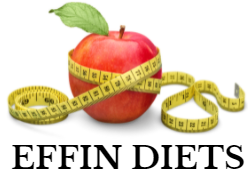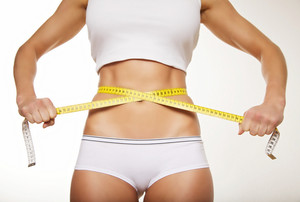Weight loss is no easy feat. It involves more than just reducing calorie intake and increasing physical activity levels; one must also pay attention to what they consume on a daily basis in order achieve optimal results. The right balance of nutrients can make all the difference when it comes down to losing those extra pounds effectively without compromising overall health status. However cutting back on favorite foods with high sugar or fat content may not always be beneficial as this could lead towards weight gain instead! To ensure successful weight management through dietary modifications consider implementing these tips:
To promote healthy digestion and prevent bloating, consider breaking up your meals into smaller portions throughout the day. This approach can help regulate blood sugar levels while also reducing feelings of fullness after eating.
Instead of relying on three large meals per day consider incorporating six smaller ones into your routine. This approach can help boost metabolism while also reducing feelings of hunger between mealtimes. Eating a substantial lunch may leave you feeling famished come dinnertime if not properly balanced with other food intake throughout the day. By adopting this strategy as part of an overall healthy diet plan it could lead to improved weight management outcomes over time.
To maintain optimal health, incorporating fruits and vegetables into your diet is essential.
If you’re looking to shed some pounds consider incorporating more fruits and vegetables into your diet. These foods are loaded with essential vitamins and minerals that promote overall health while also providing fiber which helps keep hunger at bay for longer periods of time. Some great options include carrots, celery sticks, green beans, broccoli florets, lettuce leaves, tomatoes or bell peppers. By making these nutritious choices part of your daily meal plan you can support weight loss goals without sacrificing taste!
3. Eat breakfast every day.
Achieving weight loss success requires more than just cutting calories; it also involves establishing healthy habits like eating breakfast. Skipping this meal can lead to slower metabolism rates and increased hunger later on in the day – not ideal for anyone looking to lose pounds! Instead of skipping out on your morning meal try incorporating a low-calorie smoothie made with fruit, yogurt, and milk into your routine instead. which will help keep you feeling full throughout the day while still allowing room for other nutritious foods later on. Remember: starting off strong each day sets the tone for overall progress towards achieving long term goals!
How to Find the Best Online Deals for Your Favorite Products
Staying hydrated can help you avoid unnecessary snacking and promote detoxification. Drinking water before meals also has the added benefit of reducing your overall food intake. By incorporating these simple habits into your daily routine, you’ll be well on your way to achieving optimal health outcomes!
Alcohol consumption can contribute to weight gain due to its calorie content. To avoid this issue try limiting yourself to one or two alcoholic drinks per day at most.
6. Eat healthy fats.
Saturated fats are known for their ability to elevate cholesterol levels. However there is hope in the form of omega 3 fatty acids found abundantly in fish oil and flaxseed oils which can help lower these levels significantly. To incorporate more of this essential nutrient into your diet try consuming salmon, mackerel tuna or sardines regularly as they all contain high amounts of omega 3s that will benefit both heart health and overall wellbeing. By making small changes like adding these foods to meals you’ll be able to enjoy delicious flavors while also improving long term health outcomes!
Consuming a sufficient amount of protein is crucial for maintaining optimal health.
To maintain energy levels and keep hunger at bay while exercising protein is essential. Additionally it plays a critical role in muscle growth. Incorporating lean cuts of meat, poultry fish eggs or dairy products into your diet can help you achieve these goals effectively.
Eat Whole Grains For Better Health
Whole grains are a valuable source of fiber and essential vitamins that promote stable blood sugar levels. By incorporating these foods into your diet you can avoid feeling hungry between meals. Examples include bread, pasta, cereal and crackers made from whole grain flour.
9. Stay away from processed foods.
Processed foods are notorious for their high salt, sugar and fat content which can contribute to weight gain quickly. On the other hand fresh natural options provide a healthier alternative that tastes great too! Opting for these choices will help you maintain your ideal body composition effortlessly.
10. Don’t Fear Carbs
Carbohydrates are essential for providing energy during physical activity. However consuming too many can lead to weight gain if not managed properly. To avoid this issue one should opt for complex carbs found in beans, legumes and whole grains instead of simple sugars present in breads or pastas. These types break down slowly allowing sustained energy levels throughout workouts without feeling sluggish afterward. By making these choices when it comes time for snacking or meal planning you’ll see results that last!

